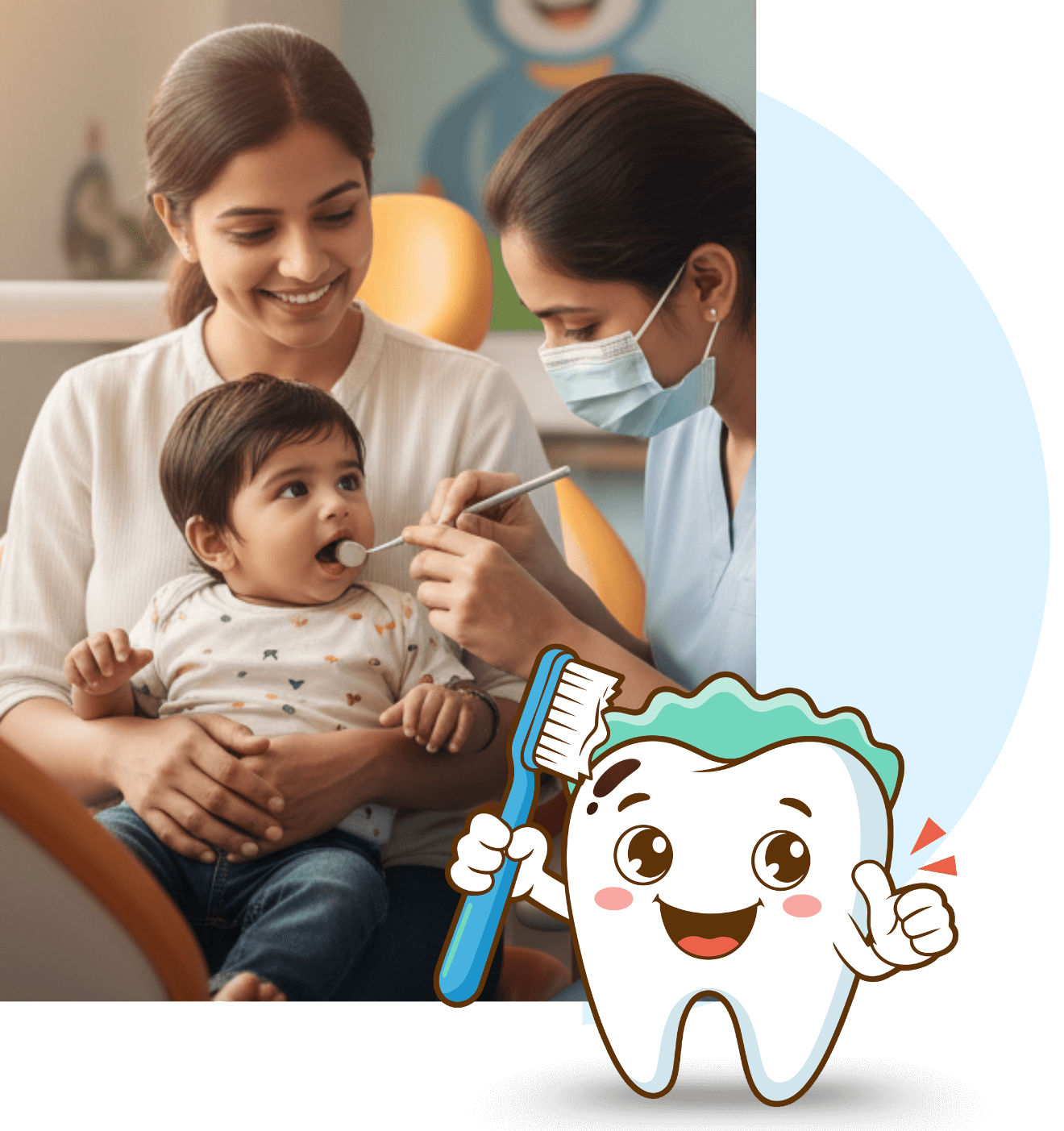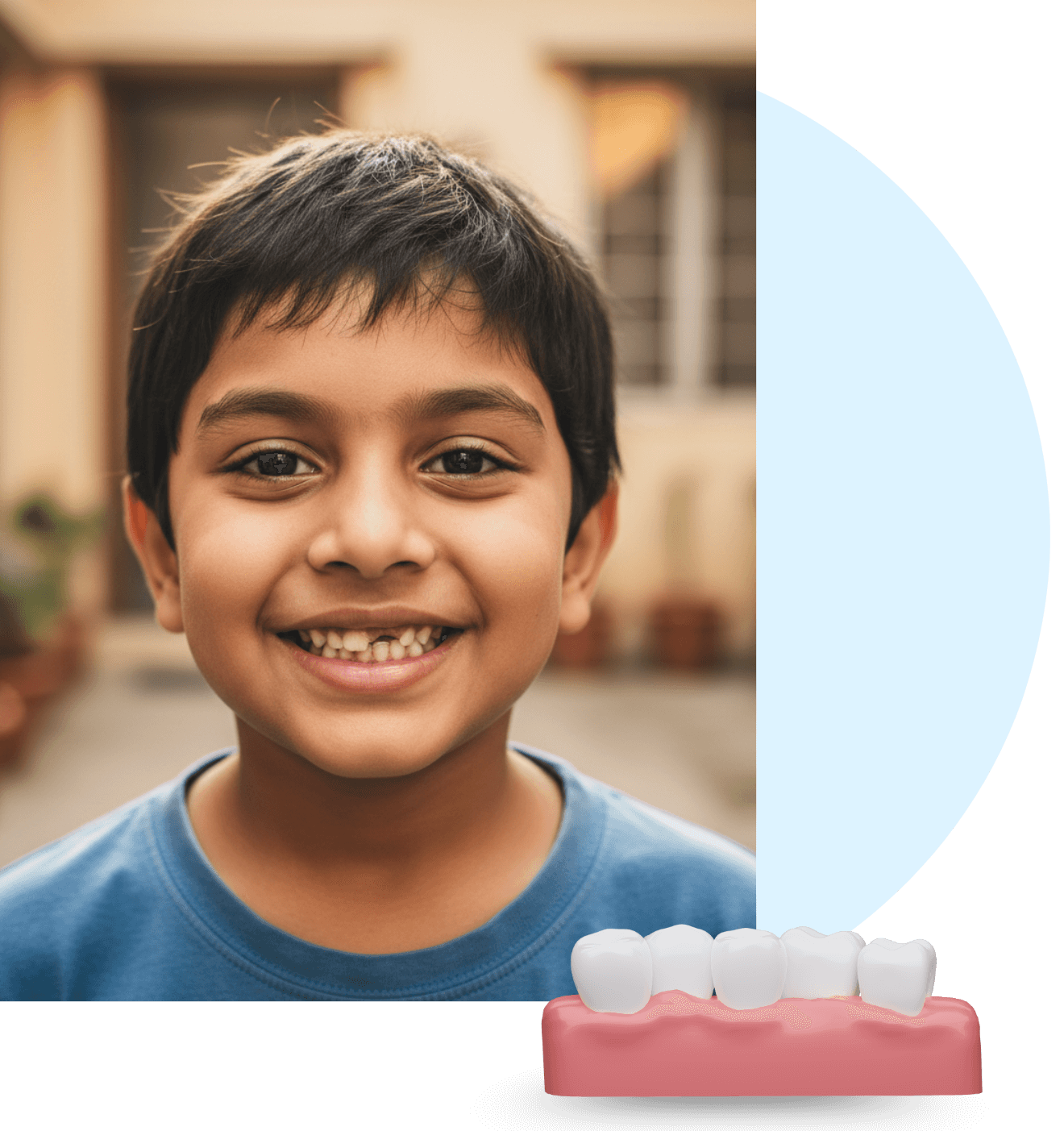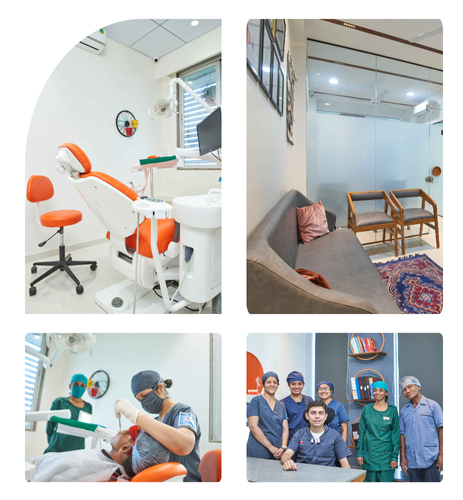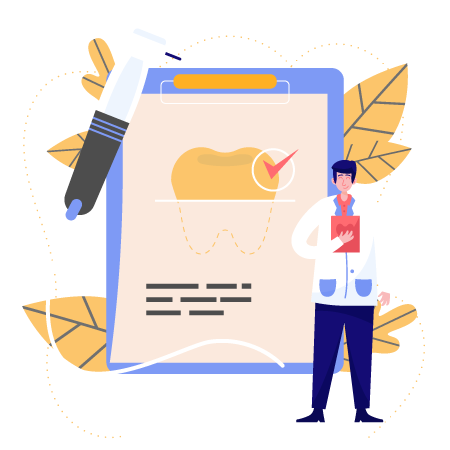Painless Pediatric Dental Treatments in Adajan, Surat
Gentle, fear-free dental care for kids — from toddlers to teens

How Can I Reduce Dental Anxiety in My Kids?
Dental visits can feel scary for kids, but a little preparation goes a long way. With the right support and mindset, you can help your child feel calm, confident, and even excited about going to the dentist.
Speak Positively About the Dentist
Introduce dental visits as a fun and important way to keep
their teeth strong and healthy. Avoid negative words or scary
stories.
Familiarize Them with the Environment
Introduce dental visits as a fun and important way to keep
their teeth strong and healthy. Avoid negative words or scary
stories.
Bring Comfort
Let them bring a favorite toy or blanket to feel safe &
relaxed during the visit.
Offer Encouragement and Rewards
Offer praise, a sticker, or small treat after the visit to
make it a positive experience.
Consider Laughing Gas (Nitrous Oxide)
Dentists specially trained to work with children know how
to ease fears and create a friendly, supportive environment. The use
of laughing gas is safe and recognized by the American Academy of
Pediatric Dentistry (AAPD).
Never say things like “You’ll get a shot” or “The dentist will pull your teeth.” These phrases can create long-term anxiety.
Professional Teeth Cleaning for Children (Guided Biofilm Therapy)
Guided Biofilm Therapy (GBT) is a gentle, effective method of professional teeth cleaning designed especially for children. It targets and removes harmful biofilm—the sticky layer of bacteria that causes cavities and gum issues—without discomfort. Using specialized tools and gentle techniques, GBT helps keep your child’s teeth and gums healthy, reduces plaque buildup, and promotes fresh breath. Early, regular cleanings with GBT support lifelong oral health and a confident smile.
Pediatric Dental Visit Timeline
Healthy baby teeth are extremely important to provide the foundation for strong, well-aligned permanent teeth, proper chewing, clear speech, and overall development.
1 Year – First Dental Checkup
Your child’s first dental visit should happen when the first tooth appears or by age 1. During this visit, the dentist will:
Examine the gums, jaw, and oral tissues
Check early teeth and oral habits, such as thumb or finger sucking
Give guidance on teething care and oral hygiene
This visit helps parents learn how to protect their child’s teeth from the very beginning.
4 Years – Preventive Care & Habit Correction
By age 4, children may start developing early cavities or persistent habits like thumb sucking. Dental visits at this age are critical to:
Reinforce good brushing and oral hygiene habits
Gently correct thumb/finger sucking or other habits
Detect early signs of cavities or decay
Remember, nearly 1 in 4 children ages 2–5 may have cavities in baby teeth. Treating issues early prevents pain, difficulty eating, speech problems, and future complications.


7 Years – Growth & Alignment Evaluation
When your child’s first molars erupt, it’s the perfect time to evaluate:
Bite alignment
Jaw growth
Potential malocclusions (misaligned teeth)
Early evaluation allows dentists to correct bite or jaw issues before they become complex, reducing the need for surgery or more intensive treatments later.
11 Years – Pre-Adolescent Checkup
By this age, children have a mix of baby and permanent teeth, allowing dentists to:
Recognize alignment and spacing issues early
Monitor jaw development and facial structure
Prepare for orthodontic interventions, if needed
Regular visits at these key ages promote life-long oral health and help children develop confidence and comfort with dental care.
A Crucial Time to Shape Your Child’s Smile
Don’t Miss This Magical Window of Growth
Early intervention is key. For children under 12, we use myofunctional appliances and dentofacial orthopedic treatments to guide jaw growth, correct bite, and improve facial symmetry. These treatments not only straighten teeth but also address functional and growth-related issues, helping your child develop a healthy, confident smile.
Common complaints we help with:
Mouth breathing: Difficulty breathing through the nose, especially at night.
Misaligned bite & Crowding:Upper and lower teeth don’t meet properly, Front teeth stick out, or there isn’t enough space.
Tongue thrusting: Tongue pushes against teeth while swallowing, affecting bite.
Snoring or sleep issues: Often linked to airway obstruction.
Facial imbalance or long face appearancedue to uneven jaw growth.
Speech issues:Lisping or difficulty pronouncing certain sounds due to tongue posture.
Difficulty chewing:Improper bite affecting chewing efficiency.
Benefits of early treatment:
Guides jaw development for proper alignment
Corrects bite and tooth positioning
Improves airway, breathing, and posture
Enhances facial aesthetics and symmetry
Prevents the need for complex orthodontic or cosmetic procedures later
Improves confidence and help in overall growth
By addressing these issues early, your child develops a functional bite, optimal jaw growth, improved airway, and balanced facial aesthetics—laying the foundation for a lifetime of healthy smiles.
Frequently Asked Questions
Have more questions? We’re here to help!
Call us at +91 7069 53 7131 to schedule your consultation today.
Yes! Children are exposed to very minimal radiation, and it only lasts a fraction of a second. X-rays are important to detect hidden cavities or developing dental problems that can’t be seen with the naked eye.
Not all children need braces, but if your child has misaligned teeth, overcrowding, or bite issues, early evaluation is key. Detecting problems early allows us to:
Even though baby teeth eventually fall out, they maintain space for permanent teeth and guide proper jaw development. Losing a tooth prematurely can cause:
In some cases, a root canal for a primary tooth is recommended to preserve it until the permanent tooth erupts.
Our team uses advanced anesthesia, magnification, and sedation when needed to make every procedure comfortable, safe, and stress-free.

Visit Us
We’re conveniently located in the Adajan area, on the 4th floor of the White Orchid building.
Enjoy ample free parking right on-site.
- 401, White Orchid, Near Shell Petrol Pump,
Above People's Dine Restaurant, L P Savani Main Road Adajan Gam, Surat, Gujarat 395009
Get direction - +91 7069 53 7131 / 76239 15351
-
Mon -Sat: 10:30 AM - 07:30 PMOnly By Appointment




